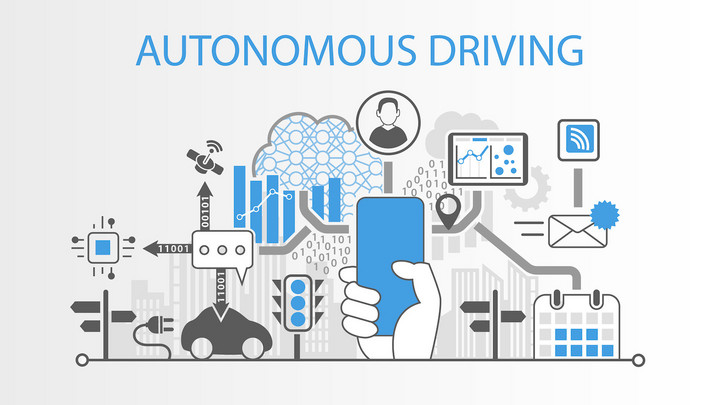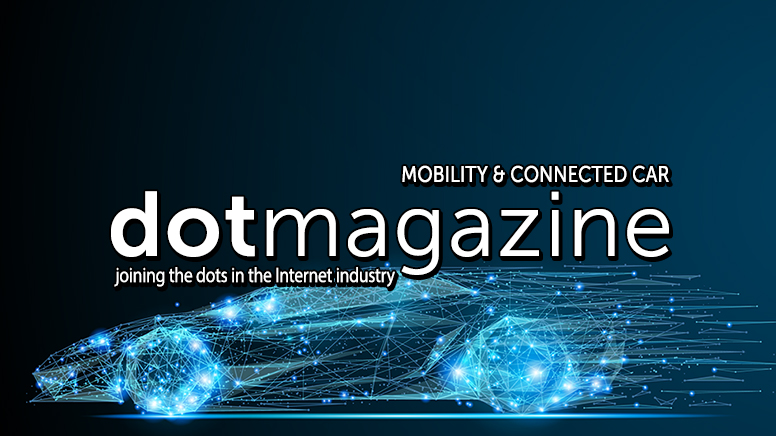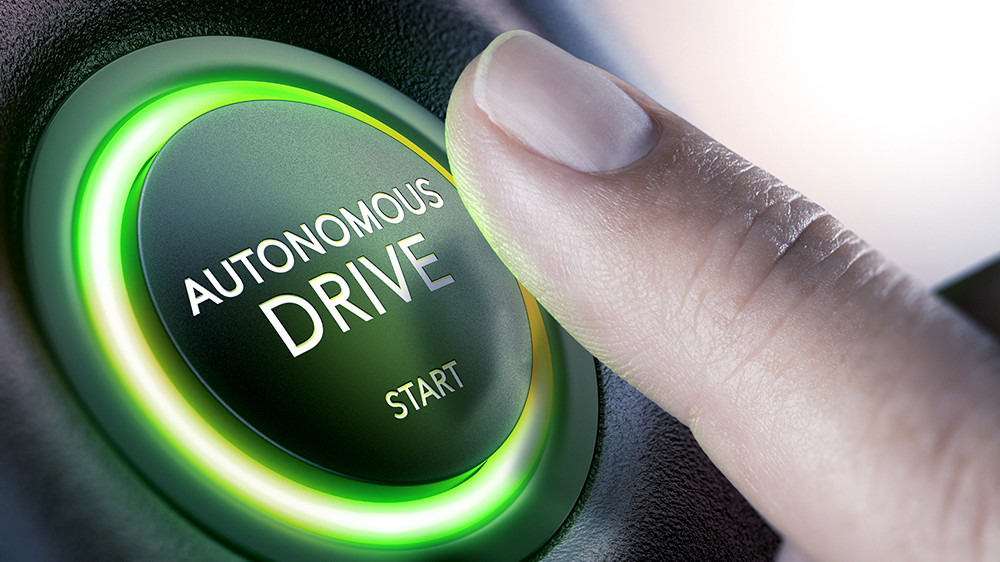The Connected Car Ecosystem - doteditorial
Thorsten Stuke, Mobility Expert at the eco Association, looks at the evolution of multimodal mobility and the connected car industry.

© a-image | istockphoto.com
The connected car ecosystem is growing inexorably. Almost every day, a new solution or app comes onto the market. The ecosystem is currently still very fragmented, and has not yet become well integrated in the way it needs to be.
Despite this, the first areas are beginning to consolidate, and the manufacturers have their hands full maintaining their controlling position.
Entire industries are beginning to merge, and new partnerships are bringing unimagined opportunities to the market. The battle for data sovereignty has broken out and it remains to be seen how this particular cake will be divided up and shared out in the long run.
The eco Association has just published new guidelines on “Connected and Autonomous Mobility”, and these guidelines make it clear that one of the most important elements for the acceptance of connected mobility will be data protection, as Alexander Rabe, Managing Director of the association, explains in his article “Future of Connected Mobility”.
Marco Müller-ter Jung, co-author of the eco guidelines, provides some details of the complexities of processing personal data in the context of mobility solutions in his interview, “Data Protection for Connected and Autonomous Vehicles”. Dr. Tibor Pataki from the General Association of the German Insurance Industry, who also contributed to the eco guidelines “Connected and Autonomous Mobility”, believes that “data belongs in the hands of consumers. Only consumers should decide whether, when, and to whom they want to transfer which data.” (see the interview with Dr. Pataki, “Motor Vehicle Insurance and the Connected Car”).
Data marketplace for the connected car industry
At the moment there are attempts to develop open platforms, which at the end of the day form the link between the user, the manufacturer, and the solution provider. This “marketplace” has not yet been established, and nobody has really managed to occupy this position. The top dogs are working flat out to get into this position. But since the market is unusually agile for everyone involved, it will take some time until a real standard will prevail. By and large, it is in this role that the greatest profit will probably lie.
As a concept, a data marketplace for the connected car industry is actually quite simple. There are a handful of characteristics that it would have to fulfill to get the acceptance of all participants. It would need to be open, agile, secure, affordable, transparent, and fast. The openness does not only refer to the interfaces – it would also need to be open to all providers in an area. That all sounds easy and feasible, but unfortunately in practice it is anything but. The existing providers always occupy a market segment themselves and try to protect themselves from competitors and to differentiate themselves. But in this context, that simply will not continue to work. Platforms must be customer-centric and not driven by suppliers.
Building the infrastructure for connected and autonomous mobility
What’s more, the infrastructure needs to be put in place. This marketplace and the mobility ecosystem will depend on reliable and high-speed network connectivity. Gerd Simon, Managing Director of the Data Center Group, sees the rollout of robust 5G networks with broad coverage and energy-efficient design as essential to the development of future mobility concepts (see “Designing 5G Networks for the Mobility Challenge”). And as the car increasingly becomes a part of the Internet of Things, with the transmission of data between cars and to the infrastructure and service providers, security is paramount for acceptance of this emerging market, as Prof. Norbert Pohlmann, Board Member for IT Security at the eco Association, makes clear (see “Making Connected Cars Safe”).
The connected truck leading the way
In the area of truck logistics, the development is considerably further advanced than in the connected car segment. Operating a truck without interconnected systems has become almost impossible from an economic point of view. The use of freight exchange platforms is standard and there is no customer who places an order without being able to monitor and track the goods continuously. Here, the passenger car market is still years behind in its degree of connectedness, as Dr. Hendrik Rosenboom explains in his video interview, “Setting Standards for Logistics in the New Digital Service World”.
The evolution of business models in multimodal mobility
The megatrend is certainly autonomous driving, but this is a huge challenge; many hurdles have already occurred and more are to be expected – especially in the legal area – as we move forward. In the meantime, the business models and interests of car manufacturers are evolving in the current mobility climate. In the past (and, if truth be told, still often in the present), automotive manufacturers differentiated themselves mainly through the technical features of their products, with reference to pure driving and the emotion connected with it. In the future, however, these will move into the background and digital services around mobility will move into the foreground.
Multimodal mobility will play an increasingly important role in everyday life and so car ownership, if this notion continues to even exist, will become a part of this mobility concept and will not entail possession of an isolated unit, as it used to. As Harald Summa, CEO of the eco Association, points out in his article “Sustainable Digitalization in the Smart City,” such a mobility concept based on the intelligent design of the smart city “combines the advantages of the motorized individual transport with the sustainability of public transport”.
Car companies will try to use their brand attributes, but offer holistic mobility concepts. If they do not do so, they will be driven out of their position by new suppliers. Some automotive manufacturers are already trying to make this change by integrating startups in order to offer a variety of services. The biggest challenge, however, will be to integrate the required agility into the existing structures.
But the next – and for me a particularly exciting – development in the mobility sector will be the standardized integration of payment methods into the vehicle. Electric mobility will set the requirements here and control the development. It will be extremely interesting to see how the existing service providers will position themselves in relation to this. If legislation relaxes the rigid rules and requirements on FinTechs – which will allow greater room for new developments – the existing market incumbents will have to face extremely difficult times, and will not be able to protect their dominant positions as easily. ApplePay is just one example of the successful integration of payment services into a mobile device. If such integration into a vehicle is successful, it will further revolutionize the mobility market.
The need for global rules
So, what still needs to be done to support the development of the connected car market? Since mobility is a global market, global rules are needed. It cannot continue to work if each country tries to develop its own rules and laws. Due to the large number of users, service providers need maximum legal certainty and clear, understandable rules to be successful in the long run. The more mobility develops in the direction of autonomous driving and interconnected services, the more important this area becomes. Today, the legal examination of solutions takes up approximately 30% of the development budget – and this cannot and must not remain the case.
Thorsten Stuke is the Managing Director and Founder of m2m Tailors. After completing his apprenticeship in the fields of aviation and business, he worked as a key account manager in the field of mobile data collection for monitoring stationary road traffic. He then served as Manager Apple Business Unit of Computer 2000 (now TechData), before becoming Head of M2M Sales and Solutions at Telefónica Germany until 2013.
Thorsten Stuke was the project manager responsible for the introduction of mobile phone parking in Cologne, Dusseldorf, and Bremen. He holds various patents in the field of M2M (protection of minors with mobile phones and secure transmission paths) and is the developer of the M2M platform with the strongest transactions in the vending market (approx. 1.5 million transactions daily).
With his extensive experience in the automotive sector, he is the leading expert on mobility topics in the eco Association.






